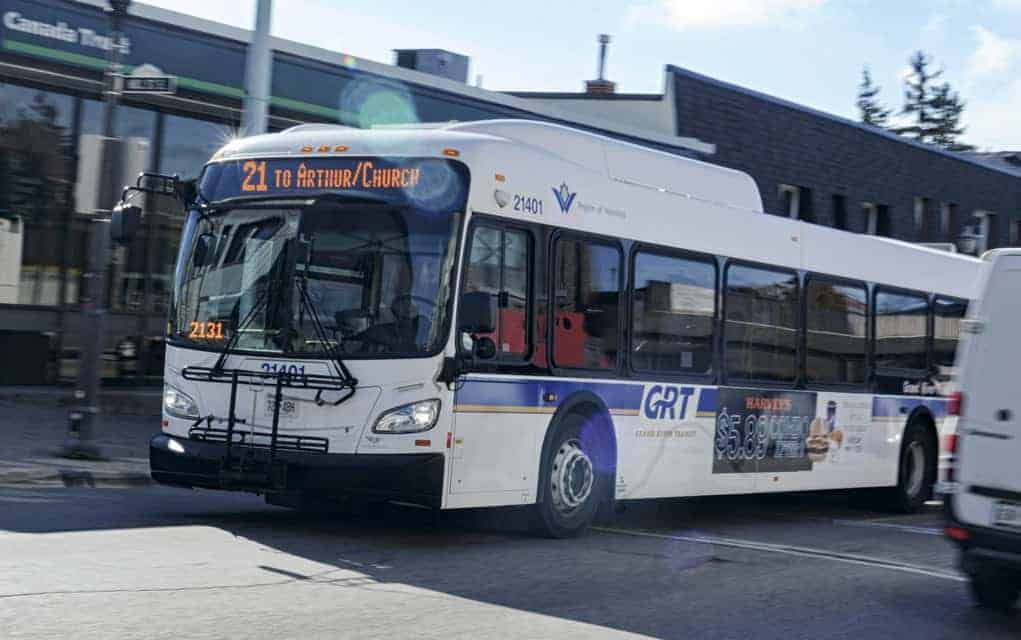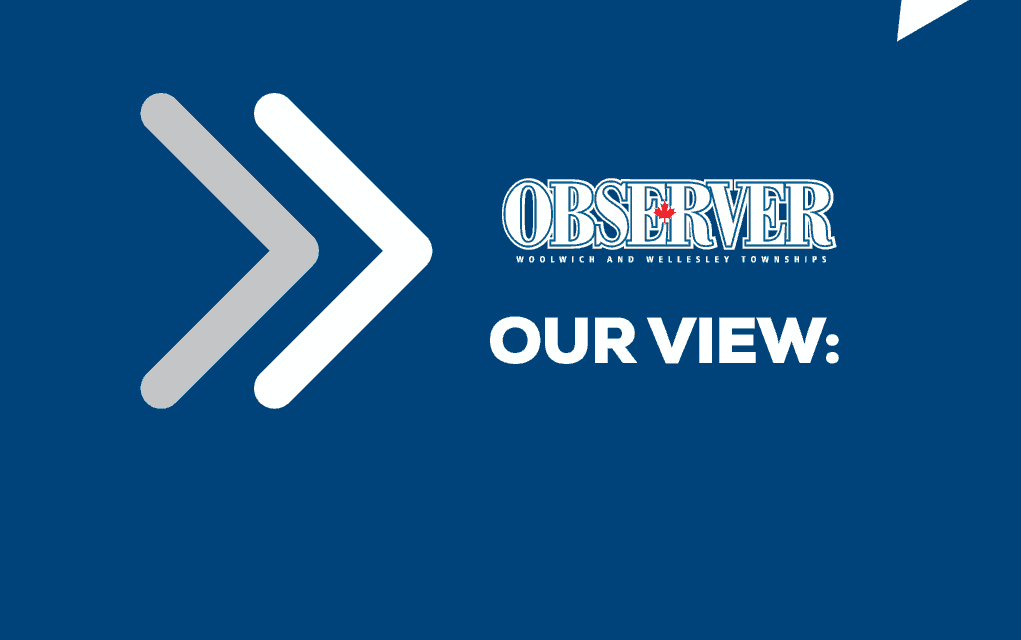Reduced service as ridership dropped dramatically may have helped Grand River Transit lower its carbon footprint, but the agency is looking for longer-term solutions in the form of electric buses.
In a plan adopted last week by Region of Waterloo council, GRT will no longer be buying diesel buses as of next year, shifting to the purchase of hybrid vehicles and then fully electric vehicles starting in 2022.
It’s part of a plan that’s been in the works since last year, part of the region’s strategy to reduce its greenhouse gas emissions.
The initial shift is expected to cost $23 million. Each hybrid bus is estimated to cost $900,000, with electric buses coming in slightly higher at about $1.2 million apiece. Peter Zinck, director of transit services for Grand River Transit, says about 40 hybrid busses will be purchased over the next four years to replace current buses in the fleet. In addition to that, 11 fully electric buses will be purchased – six in 2022 and five in 2023 – and piloted throughout the region.
Zinck says the savings coming from this program are not simple calculations, but GRT has determined there would be a significant savings in terms of energy and maintenance.
“Diesel versus electric, there’s about a 40 per cent on those fuel savings,” said Zinck. “There’s a significant savings to do that; there’s not a lot of information on maintenance savings, but there will be savings in terms of brake wear and also the fact that there isn’t an engine that has to drive with moving parts. So, there will be future savings in that area.”
There will also be no increase to staff who would work specifically on the new vehicles, as Zinck says the current staff will be trained to perform maintenance, as was the case with some dozen employees who work on the current hybrid buses in the fleet.
Mid-sized buses will also be purchased later this year for use starting 2021. Zinck says those vehicles would be used in areas where tighter turning maneuvers are required and where ridership is lower. That, too, will be a pilot program run by the region.
The latest spending decision comes despite the coronavirus-related downturn that saw ridership decline drastically and revenues fall to zero when fares were removed in April and May.
Zinck said the conversion program was deemed necessary, offering many positive aspects, including fighting climate change, at this time.
“Obviously, the priority here was to move into the electric bus field and so they’re doing that and we’re also tracking and expecting to see additional funding opportunities through the federal government,” said Zinck.
In 2024, staff will review results of the electric bus pilot and update the strategy at that time. Zinck says there are currently no plans to adjust the program in its current format, however, if funding comes in from the federal government – which previously committed to fund 5,000 electric vehicles in the future – or other source, then they will look at expanding their electric bus fleet more quickly.
“What we’ve heard from council is that they’d like to accelerate if the technology or funding opportunities change. So, if we get additional funding or the battery technology changes which makes an electric bus more operationally feasible then those are the two things I see us reacting to,” said Zinck.
Also included in the new plan is the implementation anti-idling technology – which programs the vehicle to turn off if there is no activity by the driver during a certain amount of time – enhancing engine tune-ups to reduce emissions and improve fuel economy.









